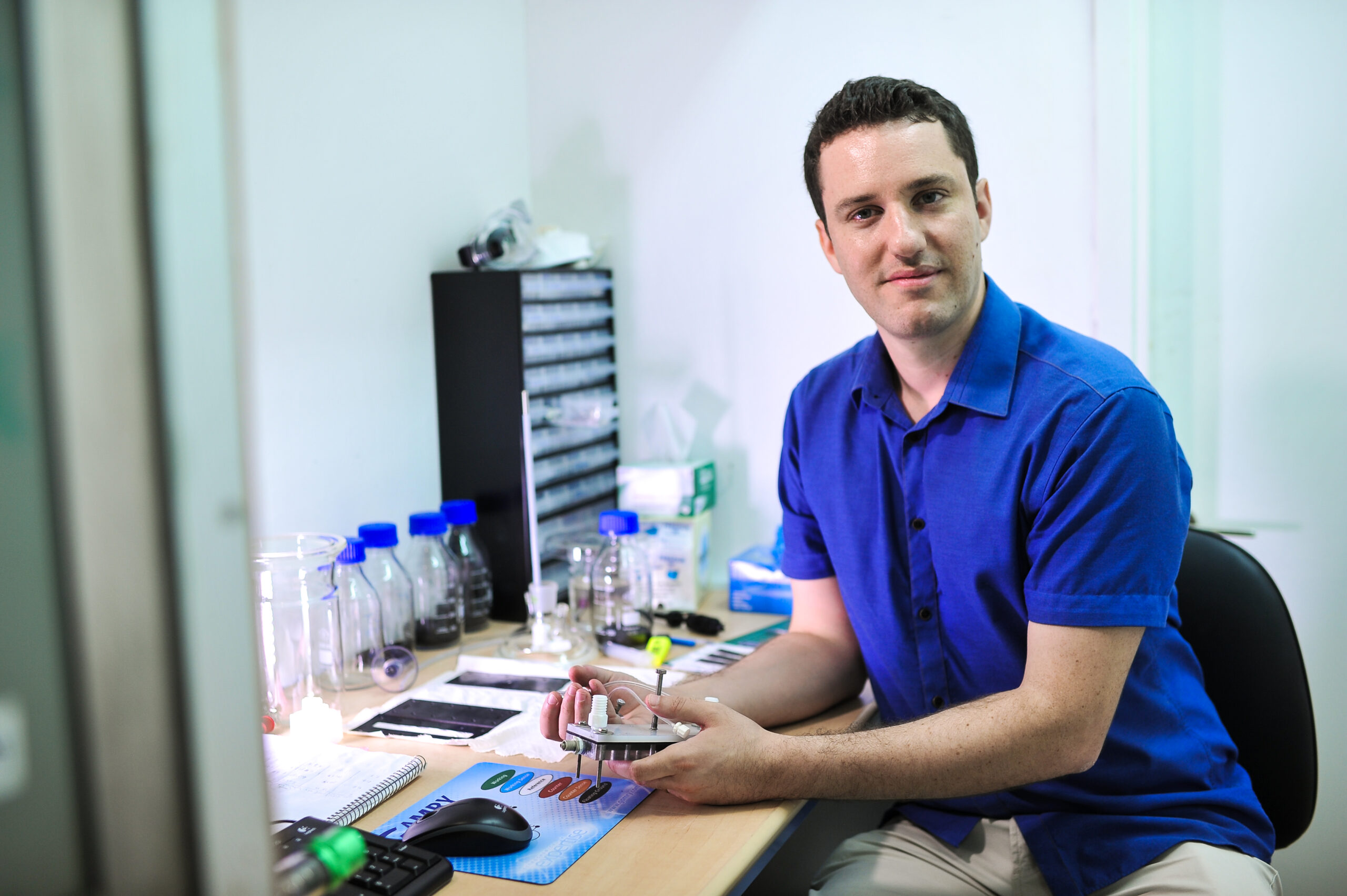Agricultural irrigation accounts for 80% of water usage in the US, but in much-drier Israel, the rate is just under 60%. With water being a limited resource, the use of recycled water for irrigation is a major contributor to water conservation. As part of the purification process needed to safely use recycled water for irrigation, excess sodium has to be removed, but some minerals, such as calcium and magnesium, should be retained.
A high ratio of sodium to calcium and magnesium, also known as the “sodium absorption ratio,” adversely affects soil permeability, negatively impacts water infiltration rate and damages crops. Over time, it can cause the buildup of salts in the soil, and such damage can be hard to reverse. Modern methods of water purification are either non-selective, removing wanted minerals and unwanted salts alike and requiring subsequent remineralization of the water; or expensive and not tunable (meaning, that they cannot be dynamically adjusted for different feedwater inputs or for changing effluent requirements).
Capacitive deionization, a novel water treatment technology that aims to improve precisely on this non-selectivity, uses two electrodes that are often made from activated carbon – an inexpensive and widely available material. Applying electric charge to the electrodes causes salts and minerals in the feedwater to migrate into the electrodes and collect in nanopores on them – essentially in microscopic content-specific pockets.
When these “pockets” are full, reversing the charge empties them out, and the electrode is ready for use again. The problem with this method is that the electrodes wear out quickly.

A breakthrough was recently achieved by Prof. Matthew Suss of the Technion Faculty of Mechanical Engineering and Wolfson department of chemical engineering and his team (doctoral students Eric Guyes and Amit Shocron and master’s student Yinke Chen), in collaboration with Prof. Charles Diesendruck of the Technion’s Schulich Faculty of Chemistry, whose main interests are water desalination and energy conservation.
The problem of hazardous compounds present at low concentrations in water sources spans domains from public health to heavy industry, they wrote. “Toxic heavy metals such as lead, cadmium, and arsenic enter water sources due to both anthropogenic activity and natural processes, while boron, present in seawater and groundwater, can have detrimental health effects when present at sufficiently large concentrations. Selective ion removal is an emerging water treatment approach for removing contaminants from water supplies while retaining desirable dissolved species and it is a relevant technique for the environmental pollutants listed above as well as for recovery of high-value materials as for use in lithium-ion batteries.”
The shortcode is missing a valid Donation Form ID attribute.



